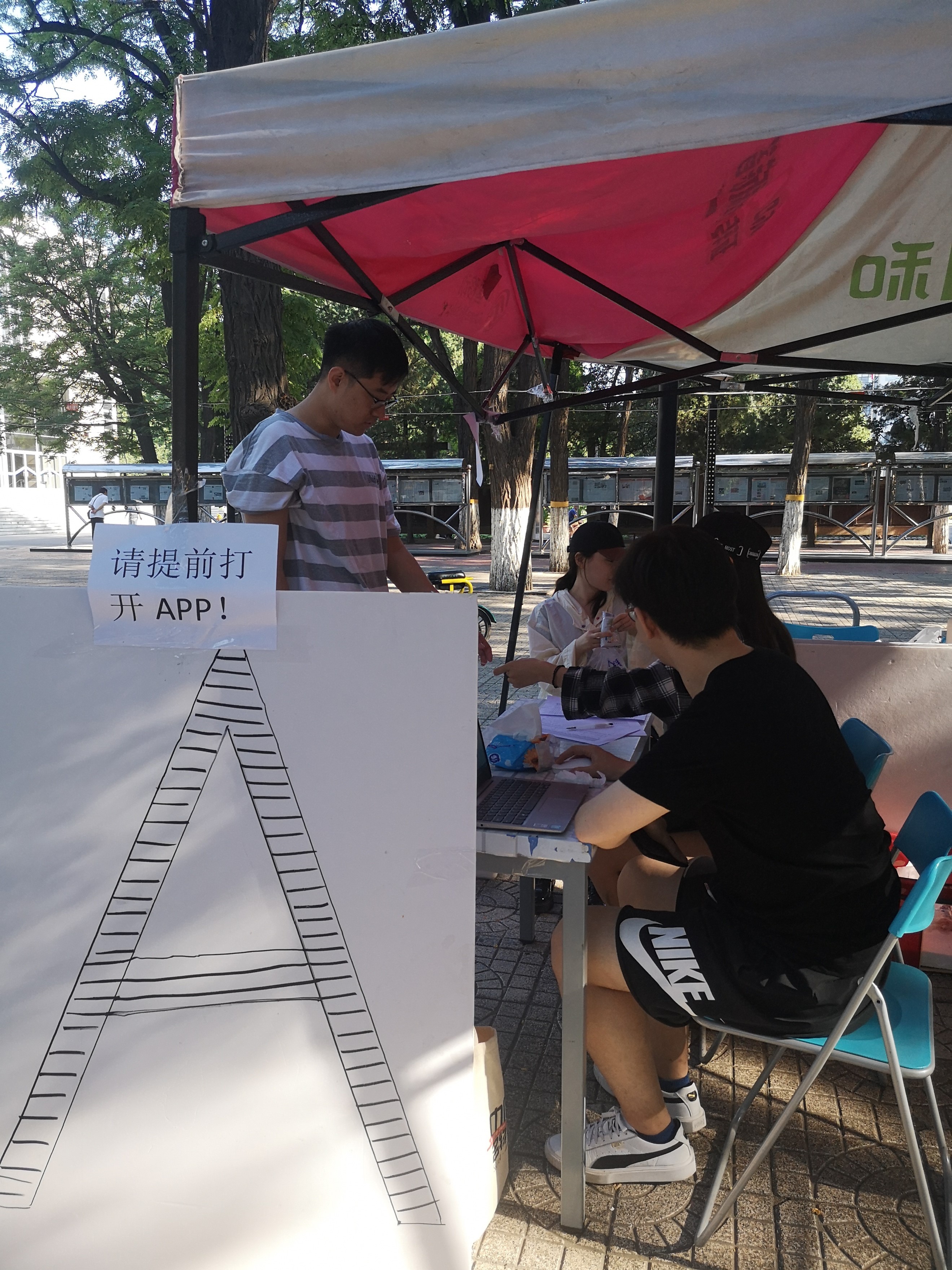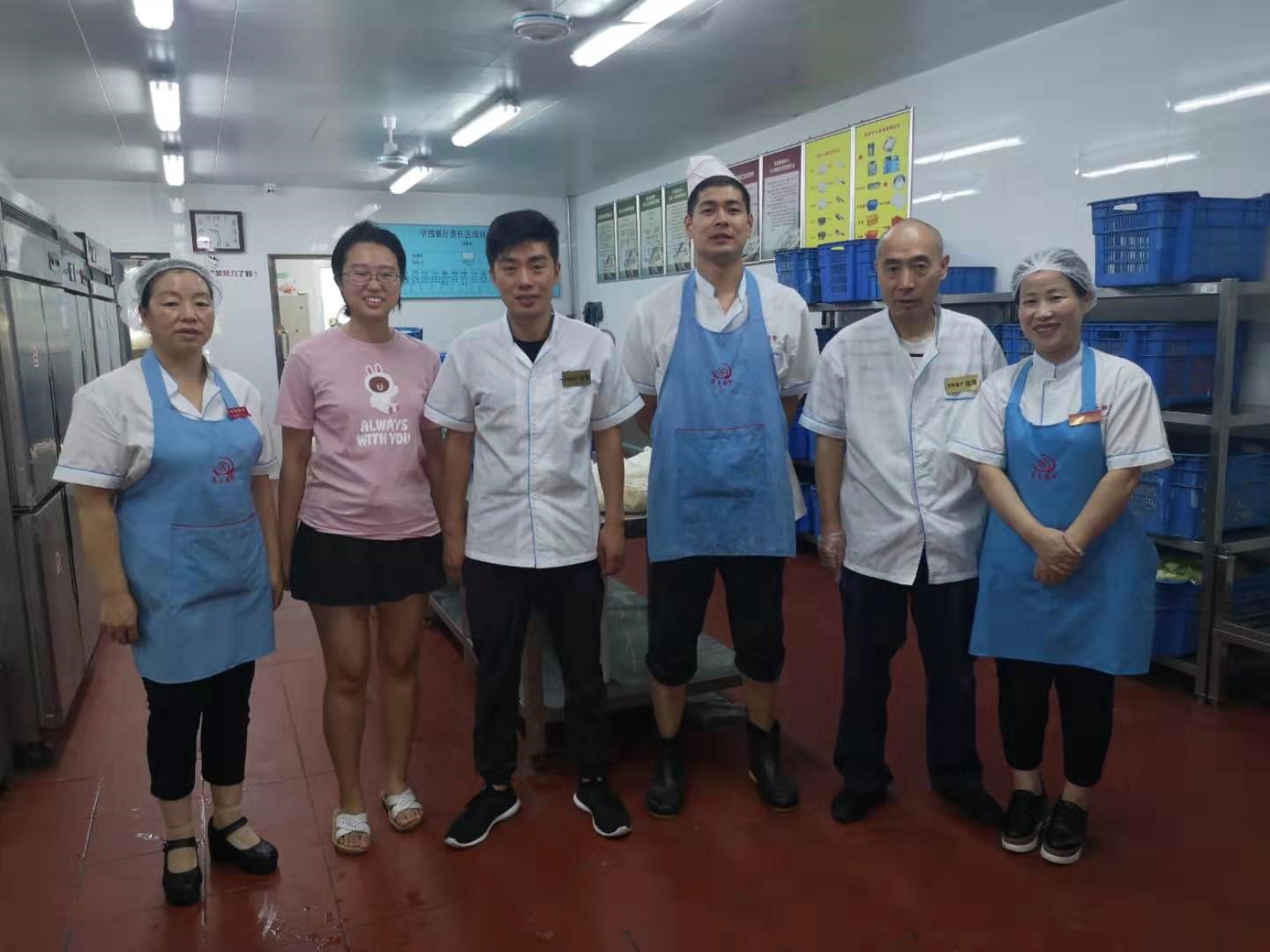发布时间:2019-08-15 10:27:30
2019年7月1日-12日,北京交通大学经济管理学院王雅璨教授、耿可心博士及阿姆斯特丹自由大学Erik Verhoef教授带领的研究团队,共同设计并在我院开展了可交易许可证经济学实验活动。该实验是《城市公共管理与服务革新:新型的城市移动管理与政策》(U-PASS)项目下属的研究课题之一,由国家自然科学基金委员会(NSFC)与欧洲城市化联合研究计划(JPI UE)资助。此外,实验活动还得到了经济管理学院团委、校团委、后勤集团以及学校保卫处的大力支持。
可交易许可证市场机制通过约束许可证总量,允许参与者在市场内自由交易,从而合理分配稀缺资源,多用于解决环境污染造成的外部性问题,也是解决交通拥堵问题的手段之一。已有关于出行可交易许可证的研究多通过理论模型验证许可证的有效性。本次研究则从出行者行为角度入手,通过实地实验的方式,观测出行者在可交易许可证机制下的实际出行选择行为,验证了可交易许可证在缓解城市交通拥堵中的可操作性,可理解性以及市场稳定性,从而为道路高峰可交易许可证的设计提供参考依据。

图1 王雅璨教授现场指导实验开展工作

图2 实验参与同学领取早餐
本次实验共进行两周,共有来自经济管理学院大一、大二的100名学生参与。活动过程中,参与者在每天早上6:50-8:30可凭早餐劵领取早餐,同时可通过手机APP随时随地进行早餐劵线上交易。实验结果表明,可交易早餐券可以改变学生的就餐时间选择行为,有效减少20%~30%的高峰就餐人数,在一定程度上能起到削峰填谷的实际效果。同学们也对此次实验反响热烈,纷纷表示此次活动十分有趣,同时参与实验使其对于经济学实验方法和行为经济学理论有了更深的理解。

图3 耿可心博士与后勤人员合影
《城市公共管理与服务革新:新型的城市移动管理与政策》(U-PASS)项目启动于2019年3月,由英国利兹大学(ITS)、荷兰阿姆斯特丹自由大学与北交大交通运输经济与管理研究团队等联合投标。项目围绕城市公共管理和治理、服务创新和政策、交通建模和优化以及交通行为实验等研究展开,通过开展合作城市交通建模分析和实证研究,为城市交通的服务和政策设计、新型交通试验的设计和新型交通模型的开发提供创新思路,旨在将当今城市发展的实践与理论研究相结合,从多角度探讨城市交通可持续发展的前沿问题。
July 1-12, 2019, a research team headed by Prof. Wang Yacan and Dr. Geng Kexin from the School of Economics and Management of Beijing Jiaotong University and Prof. Erik Verhoef from Vrije Universiteit Amsterdam jointly designed and conducted a tradable permit economics experiment at our school. This experiment is one of the research projects under the program “Urban public administration and service innovation: new-type urban mobility management and policy” (U-PASS), funded by the National Natural Science Foundation of China (NSFC) and Joint Programming Initiative Urban Europe (JPI UE). In addition, the experiment received generous support from the CCYL committees of the School and BJTU, the logistics group and the security office of the school.
The tradable permit market mechanism allows participants to freely trade within the market by constraining the total quantity of permits, thus reasonable allocating scarce resources, intended to address the external problems caused by environmental pollution and also serving as one of the ways to resolve the traffic congestion problems. Most of the existing studies about travel tradable permits verify the effectiveness of permits through theoretical models. This study involves observing the actual travel choices of travelers under the tradable permit mechanism through field experiment and from the perspective of traveler behavior, and verifies the operability, understandability and market stability of tradable permits in alleviating urban traffic congestion, thus providing a point of reference for design of tradable permits in rush hours.

Picture 1. Prof. Wang Yacan guides the conduct of experiment onsite.

Picture 2. Students involved in the experiment collect breakfast.
This experiment will last for two weeks in total, involving 100 freshman and sophomore students from the School of Economics and Management. During the event, participants may collect breakfasts by presenting their breakfast coupons from 6:50 to 8:30 am each day, while capable to trade the breakfast coupons online using mobile APP at any time and place. The experimental results show that the tradable breakfast coupons can change the dining time choices of students and effectively reduce the dining population during peak hours by 20%~30%, thus achieving the actual results of peak shaving to a certain extent. Students all expressed their interest in this experiment, adding that participation in this experiment allows them to gain a deeper understanding of the economics experimental methods and the behavioral economic theories.

Picture 3 Dr. Geng Kexin takes group photos with logistical personnel.
The U-PASS Program, started in March 2019, was bided for jointly by University of Leeds (ITS), Vrije Universiteit Amsterdam and the transport economy and management research team of BJTU. The program unfolds around research into urban public management and governance, service innovation and policy, traffic modeling and optimization and traffic behavior experiment and provides innovative approaches to urban transport service and policy design, new-type traffic experiment design and new-type traffic model development through cooperative urban traffic modeling analysis and empirical research, with a view to exploring the frontier issues of the urban transport sustainability from multiple perspectives by combining the present urban development practices and theoretical research.